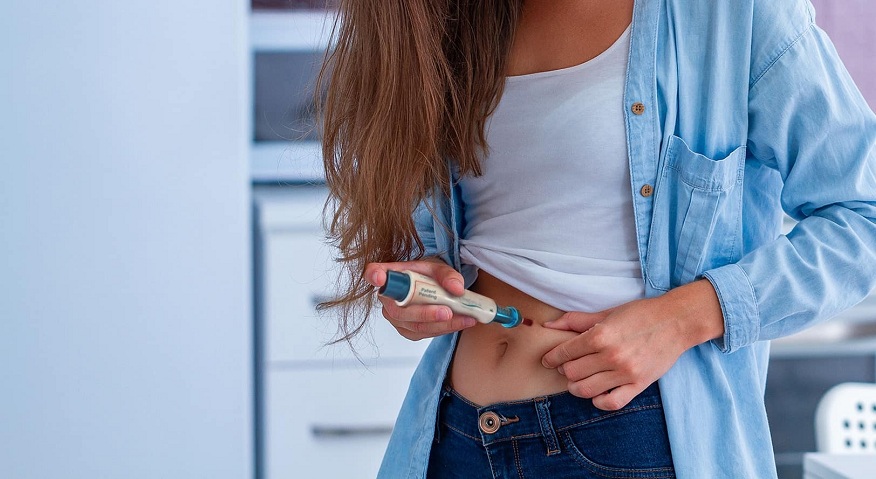
Key Take a ways:
- Self-injection anxiety can be overwhelming and prevent individuals from managing their health conditions or receiving necessary medications.
- Common causes of self-injection anxiety include needle phobia, past traumatic experiences, anticipation of pain, and unfamiliarity with the process.
- Self-injection anxiety can lead to non-compliance, increased stress, and missed opportunities for treatment.
- Strategies for overcoming self-injection anxiety include identifying and acknowledging fears, talking to others about anxiety, and building a support system.
- Managing self-injection anxiety can involve deep breathing and relaxation exercises, visualization and positive affirmations, and distraction techniques.
- If self-help techniques are insufficient, seeking professional help such as cognitive-behavioral therapy or medications may be beneficial.
- Alternative therapies like acupuncture, hypnotherapy, or biofeedback can complement traditional treatments for self-injection anxiety.
Understanding Self-Injection Anxiety
Self-injection anxiety refers to the fear and apprehension individuals experience when they need to administer injections to themselves. While many people may feel a bit uncomfortable or nervous when faced with the prospect of self-injection, for some individuals, this anxiety can be overwhelming and debilitating. The fear of self-injection can prevent individuals from properly managing their health conditions or receiving necessary medications.
The Fear of Self-Injection
The fear of self-injection can manifest differently in each individual, but common symptoms include increased heart rate, sweating, trembling, dizziness, and a sense of impending doom. The fear can be triggered by the thought of needles, pain, or the act of self-administering medication.
This fear may stem from previous negative experiences with injections, such as painful injections during childhood or traumatizing medical procedures. Additionally, misconceptions and myths surrounding injections and their side effects can contribute to self-injection anxiety.
Common Causes of Self-Injection Anxiety
Several factors can contribute to the development of self-injection anxiety:
- Needle Phobia: Some individuals may have a specific phobia of needles, known as trypanophobia. This fear can extend to self-injection as well.
- Past Traumatic Experiences: Previous painful or traumatic experiences with injections can create a negative association and heighten anxiety levels.
- Anticipation of Pain: The fear of experiencing pain during the injection process can lead to anxiety, especially for individuals who have a low pain tolerance.
- Unfamiliarity with the Process: Lack of knowledge about the correct technique for self-injection or fear of making a mistake can contribute to anxiety.
How Self-Injection Anxiety Affects Your Health
Self-injection anxiety can have various negative effects on an individual’s health and well-being:
Non-compliance: Fear and anxiety can prevent individuals from administering their medications correctly or regularly, leading to a lack of treatment efficacy and potential health complications.
Increased Stress: The anxiety associated with self-injection can lead to chronic stress, which can have detrimental effects on both physical and mental health.
Missed Opportunities for Treatment: Avoidance of self-injection due to anxiety can result in missed opportunities for necessary medical interventions and appropriate healthcare management.
Empowering Yourself to Overcome Self-Injection Anxiety
While self-injection anxiety can be challenging, there are several empowering strategies individuals can employ to overcome their fears and regain control of their health:
Identifying and Acknowledging Your Fear
The first step in overcoming self-injection anxiety is to identify and acknowledge your fear. Take the time to understand the underlying reasons for your anxiety and recognize that it is valid. Acknowledging your fear allows you to begin addressing it proactively.
Breaking the Stigma: Talking to Others About Your Anxiety
Sharing your anxieties and concerns about self-injection with trusted individuals can be a helpful step in breaking the stigma surrounding this issue. Whether it’s friends, family, or a support group, opening up about your fears can provide you with emotional support and understanding.
Building a Support System
Building a reliable support system is crucial when dealing with self-injection anxiety. Surround yourself with understanding individuals who can offer encouragement, guidance, and reassurance during the self-injection process. This support can help alleviate anxiety and provide a sense of security.
Techniques for Managing Self-Injection Anxiety
While overcoming self-injection anxiety may take time and effort, employing various techniques can help individuals manage their fears and make the process more manageable:
Deep Breathing and Relaxation Exercises
Deep breathing exercises can help calm the body’s stress response and reduce anxiety. Practice diaphragmatic breathing, where you inhale deeply through your nose, hold the breath briefly, and exhale slowly through your mouth. Combining deep breathing with relaxation techniques, such as progressive muscle relaxation or guided imagery, can further promote a sense of relaxation.
Visualization and Positive Affirmations
Visualization involves mentally picturing a calm and positive experience while self-injecting. Envisioning a successful and pain-free injection, coupled with positive affirmations such as “I am in control of my health” or “I am capable of handling injections,” can help reframe negative thoughts and reduce self-injection anxiety.
Distraction Techniques during Self-Injection
Engaging in activities that distract your focus during self-injection can help redirect your attention away from the anxiety-inducing aspects of the process. Listening to music, watching a show, or engaging in deep conversation with a supportive person can divert your attention and make the experience more bearable.
Seeking Professional Help for Self-Injection Anxiety
If self-help techniques are insufficient in managing self-injection anxiety, it may be beneficial to seek professional help. Mental health professionals can provide guidance, support, and evidence-based treatments to address and overcome self-injection anxiety:
Therapeutic Approaches for Managing Anxiety
Cognitive-behavioral therapy (CBT) can be highly effective in treating self-injection anxiety. This therapeutic approach helps individuals identify and challenge negative thoughts and beliefs surrounding self-injection, replacing them with more positive and realistic ones. Exposure therapy, a component of CBT, gradually exposes individuals to their fear of self-injection, helping desensitize and reduce anxieties over time.
Medications for Anxiety Relief
In some cases, medication may be prescribed to help manage severe self-injection anxiety. Antidepressants or anti-anxiety medications may be recommended by a healthcare professional to alleviate symptoms and assist individuals in overcoming their fears.
Alternative Therapies for Self-Injection Anxiety
Alternative therapies such as acupuncture, hypnotherapy, or biofeedback can complement traditional treatments for self-injection anxiety. These therapies offer additional relaxation techniques and may help individuals find relief from their anxiety symptoms.
Overcoming self-injection anxiety is a journey that requires patience, determination, and a tailored approach. By understanding your fears, seeking support, employing self-help techniques, and considering professional help when needed, you can empower yourself to face self-injection without overwhelming anxiety. Remember, you are in control of your health, and with the right strategies, you can overcome self-injection anxiety and lead a fear-free life.
FAQ
Question: What is self-injection anxiety? – Self-injection anxiety refers to the fear and apprehension individuals experience when they need to administer injections to themselves. It can be overwhelming and prevent individuals from managing their health conditions or receiving necessary medications.
Question: What are the common causes of self-injection anxiety? – Common causes of self-injection anxiety include needle phobia, past traumatic experiences, anticipation of pain, and unfamiliarity with the process.
Question: How does self-injection anxiety affect your health? – Self-injection anxiety can lead to non-compliance, increased stress, and missed opportunities for treatment. It can prevent individuals from administering their medications correctly or regularly, leading to a lack of treatment efficacy and potential health complications.
Question: How can I empower myself to overcome self-injection anxiety? – Strategies for empowering yourself to overcome self-injection anxiety include identifying and acknowledging your fear, talking to others about your anxiety, and building a support system.
Question: Are there techniques for managing self-injection anxiety? – Yes, techniques for managing self-injection anxiety include deep breathing and relaxation exercises, visualization and positive affirmations, and distraction techniques during self-injection.
Question: What should I do if self-help techniques are insufficient in managing self-injection anxiety? – If self-help techniques are insufficient, it may be beneficial to seek professional help. Cognitive-behavioral therapy (CBT) and medications such as antidepressants or anti-anxiety medications may be recommended by a healthcare professional.
Question: Can alternative therapies help with self-injection anxiety? – Yes, alternative therapies such as acupuncture, hypnotherapy, or biofeedback can complement traditional treatments for self-injection anxiety.
Question: How can I lead a fear-free life when it comes to self-injection? – By understanding your fears, seeking support, employing self-help techniques, and considering professional help when needed, you can empower yourself to face self-injection without overwhelming anxiety. With the right strategies, you can overcome self-injection anxiety and lead a fear-free life.






